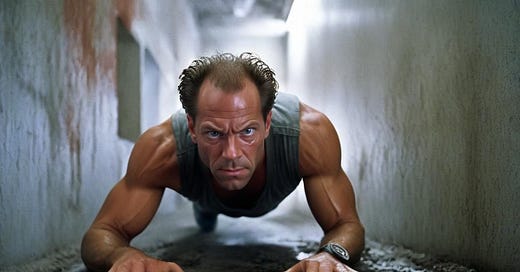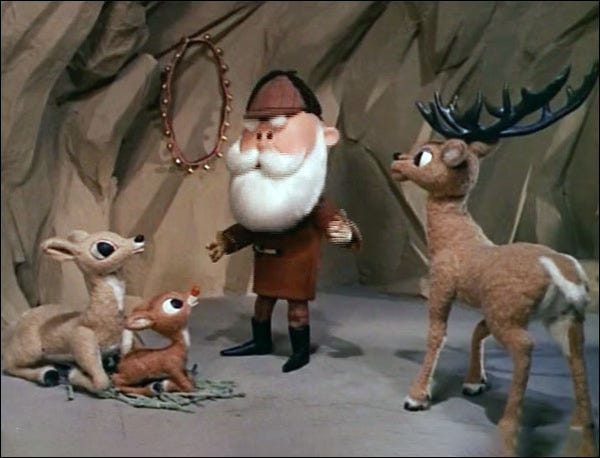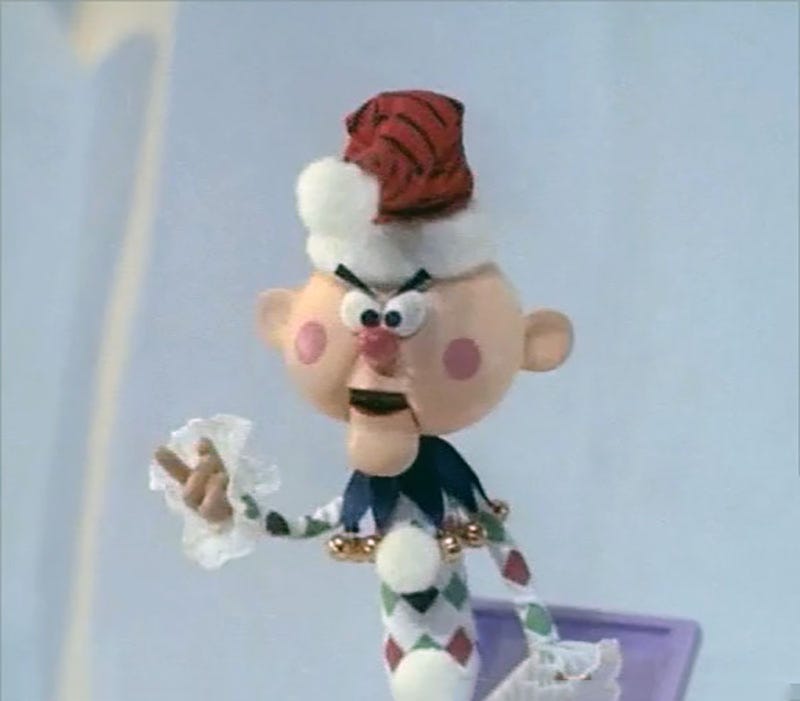Die Hard is not a Christmas movie. I am uninterested in debating the matter. Oh, it’s a great movie that takes place at Christmas, but it’s a bit violent. Remember that scene in “It’s a Wonderful Life” when Sam, the guy who moved away and got into plastics, wiped out a sin-den in Potterville with a machine gun shouting HEE HAW, MUTHAFARGERS? No.
I am not rigid about what is and is not a Christmas movie, if you’re wondering. Hallmark movies fit the definition, even though they’re just Harlequin paperbacks with sleigh-bell soundtracks. Sample plot:
A busy career woman learns the true meaning of Christmas when she falls under the spell of a darkly charismatic European, only to realize that its her working-class man, who literally would walk barefoot across broken glass for her, is her true love, and -
No, wait, that’s Die Hard. More like this:
Kendee Kermle is a busy New York businesswoman who runs her own candy caramel company, called Better than Sects, a reference to her troubled history escaping a religious cult. She thinks she is in love with her fiancé Harcourt X. Groyne, a man who imports Campari to the US then exports it right back, because it’s awful. A few days before Christmas she gets a cryptic message from a high school sweetheart Truman Paynter in her home town of Kincaid: it says only “do you remember when.” She realizes that she does not, in fact, remember when, and must go home to learn the mysteries of her past. She runs out on her fiance and drives to Kincade through a picturesque snowstorm, and arrives just in time to meet up with Truman, who runs a dog shelter / yoga studio, and they make the candies that will put the charity drive to save the town gazebo over the top. It’s the best Christmas ever!
It has the essential element of a holiday movie: something has happened that might prevent Christmas from its ideal state of completion and perfection, and then this problem is overcome. Christmas is always on the knife’s edge, a simple unforeseen event threatening to cancel it. Oh no! Santa’s sleigh has a broken runner! I guess this calamity will ripple backwards through time and negate the birth of Jesus! But they always solve the problem, and the young audience is assured: it all ends well. Ebenezer comes around. Frosty the Golem saves the day. Rudolph, with his protuberant illumination, permits Santa to navigate a storm, even though it does not project light at all.
Speaking of which.
I hate the modern revisionism that says “that thing you loved is bad, actually,” but Rudolph has problems you don’t notice until you’re watching it with kids of your own. Santa, for starters, is an utter jerk. The elves put together a pageant to sing his praises; he rolls his eyes like a petulant teen who has to listen to Andy Williams Christmas album. When Rudolph is born, Santa pays a visit to the new parents, and sings a song about . . . parental love? The miracle of life? The adventures that await this tender foal? No, he sings about himself, Kris Kringle, and how he’s the king of Ding-a-Ling. Imagine being a mother who’s exhausted after hours of labor, and the boss shows up in the maternity ward and does a number about how he’s just gotten an award from J. D. Powers for management innovation. Read the cave, Claus.
By the way, Rudolph’s home doesn’t even rise to the level of a Dickensian hovel:
When his star employee is living in a barren cave without a stick of furniture, you know the elves are hot-bunking it in under-heated huts that make Quatari construction-worker dorms look like Versailles.
Then there’s the Gulag of Misfit Toys. It’s only later that you realize that the Misfits, unlike all the other toys we see, are sentient, as if their quality-control defect has somehow cursed them with self-awareness. This makes Santa’s decision to dump them here even worse.
(Although you can appreciate why no kid would want this neurotic thing around all day, alternating between states of bitchy invective and mopey self-pity.)
Anyway. We all have our favorites, and it doesn’t matter what anyone else thinks. Which version of “Christmas Carol” is best, the Alistair Sims, George C. Scott, Patrick Stewart, Muppet version, or Magoo? The answer is “Yes.” Unlike “Die Hard,” there’s no debate about whether they’re Christmas movies.
Now, if John McClain had crawled through a chimney instead of an air duct, they might have a case.








Not only is Die Hard a Christmas movie, it is literally a retelling of the Christmas story.
Consider:
The story of Jesus culminates in His holy salvation of fallen Man.
The story of John McClane culminates in his salvation of Holly from a falling Man.
I rest my case.
I’ve always liked, and often quoted,Our Genial Host’s take on Rudolph from 21 years ago.
(Scroll down to Tuesday)
https://www.lileks.com/bleats/archive/02/1202/120203.html
“
What’s the problem with the red nose, anyway? These are reindeer who can fly, which isn’t a feature in the original attribute profile. So a guy has a red nose - fine, it’s unusual, but please explain why this must result in ostracization. We need a little more backstory: maybe the last deer with a red nose when mad and gored everyone. “They called it Bloodmas Eve - aye, the older reindeer still talk about it. The red-nosed one stood in the stable door, eyes wide as wagon wheels, gore-flecked foam gushing from his mouth, the entrails of our friends wrapped around his antlers like string in a cat’s cradle. His nose burned like a coal from Satan's furnace, it did; the snow made a horrible hiss as it touched the nose and sizzled into steam. He made a cry they say no reindeer has ever made before, or since - a sound of pain and fury that would chill the blood of the Abominable One himself.
"Then he started in on the elves.
" No, those red-nosed ones are always bad. Good thing Rudolph ran away, or we’d have killed him - why, Santa was out in the shed honing the axe when he heard he’d run off with that gay fellow from the paint department.”
“
It the “Then he started in on the elves” line that always makes me laugh. Out loud, even.